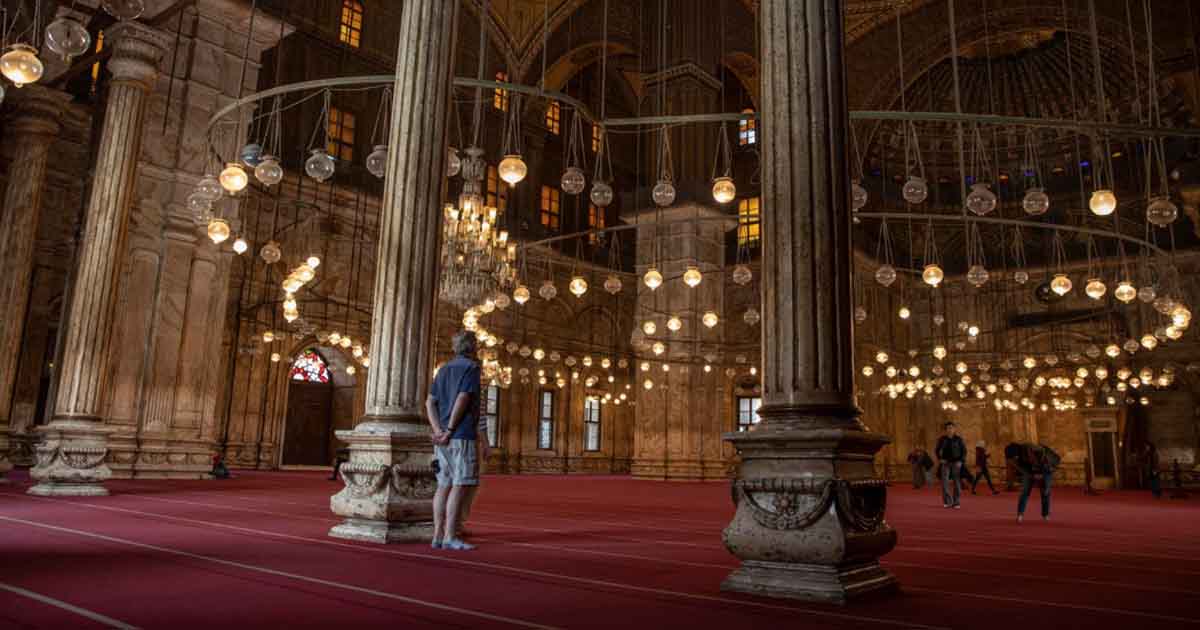Shariq Siddiqui |
Many of the world’s 1.8 billion Muslims are experiencing the holy month of Ramadan differently this year – disrupted by social distancing amid the COVID-19 pandemic.
Ramadan, which began on April 24, is the ninth month on the Islamic lunar calendar during which Muslims are required to fast from food, drink and sexual activity from dawn to dusk.
It is also a time for Muslims to renew their faith and remind themselves of the best that they can be by performing acts of compassion. For many Muslims, Ramadan is centered around helping the poor.
As a scholar of Muslim philanthropy, I have watched as people and institutions have adapted practices to accommodate social distancing rules. I have also observed how the crisis has exposed the vulnerability of Muslim nonprofits.
Read more: British Muslims: This Ramadan I am staying at home!
Muslims tend to give their “zakat” – obligatory annual charitable payments – during Ramadan. In the U.S., this has traditionally meant fundraising “iftars” – the evening meal to break daily Ramadan fasts – or congregational fundraising at community prayers or volunteering.
Social distancing has made it hard to keep up this tradition.
Anti-poverty efforts
According to a 2018 survey of Muslim philanthropic practices by the Institute of Social Policy and Understanding, U.S. Muslims make efforts to alleviate poverty in America a high priority when giving to Muslim charities. In fact, the poll found it was the second-most important focus of philanthropy after supporting their places of worship. Education and international relief rounded out their top four priorities.
When it comes to giving to non-Muslim charities, Muslims likewise spent more on groups that deal with poverty within the United States than other countries.
Civil rights organizations ranked below foreign and domestic anti-poverty efforts even as Muslims face a rising tide of Islamophobia. At a time when many Muslims in the U.S. are feeling marginalized or at risk of hostility, they are still prioritizing the needs of others. In fact, they are just as likely to give to causes outside their faith as those within, and of all faiths are the most likely to give to poverty causes outside their religion.
Refuse to aid states burdened by the federal government to fight a pandemic on their own.
Refuse to undo intentional efforts to sink the U.S. Post Office.
Refuse to fund anti-poverty and anti-hunger programs.
"We can't afford it!"
$500 million to paint Trump's wall black. https://t.co/AewTBWeIDd
— Matt Ortega (@MattOrtega) May 7, 2020
Similarly, a recent survey of British Muslims found that younger U.K. Muslims are passionate about reducing domestic inequality and poverty and that they are focusing on efforts within their own borders rather than Muslims in other countries.
The economic downturn caused by the coronavirus will have inevitably pushed many families – Muslim and non-Muslim alike – into poverty. Even before the crisis, more than a third of Muslim Americans were below the poverty line – a higher proportion than that of the general population.
Direct aid
Despite the challenges brought about by social distancing, Muslims organizations have still found ways to channel money to those in need. In the United States, the Islamic Society of North America has, for example, helped establish a National Muslim COVID-19 Taskforce.
Local community organizations have come together to develop their own Muslim COVID-19 task forces in places like Indianapolis and Chicago.
Some congregations are providing iftar food for those in need through drive-thru services because the traditional community meals are all canceled. Some congregations and organizations like ICNA Relief are dropping off at homes and apartment buildings.
Read more: Half a billion people could be forced into poverty: estimates Oxfam
These local efforts are supported by national networks.
The Community Collaboration Initiative, established by the Muslim Philanthropy Initiative at the Lilly Family School of Philanthropy, where I am employed,“ has brought together 26 Muslim American nonprofits to find ways to collaborate.
While other Muslim relief organizations have increased domestic effort to distribute food and aid directly to people’s homes.
Emergency funding
Meanwhile guidance from religious bodies like the Association of Muslim Jurists of America and the Fiqh Council of North America has meant that struggling Muslim families and businesses can apply for federal funds. They ruled that it was permissible to apply for loans under the government’s CARES Act despite the funds being subject to interest – which is forbidden under Islamic law.
I’ve already heard from a number of Muslim nonprofits that they are facing deep financial challenges as a result of the coronavirus crisis.
Read more: New world order: Why South Asia will lead ‘Great Game’
Muslim Americans represent around 1% of the U.S. population and trend younger and poorer. This may explain why Muslim American nonprofits are vulnerable during times of economic hardship and may benefit from greater support from outside foundations and philanthropists.
Muslims in the U.S. have shown their resourcefulness in finding new ways of giving during the coronavirus-hit Ramadan. Many of the faith’s nonprofits may need to do likewise to keep afloat during the hard economic times to come.
Courtesy: The Conversation














